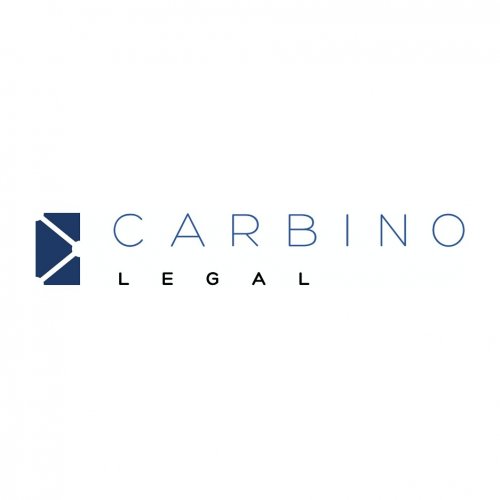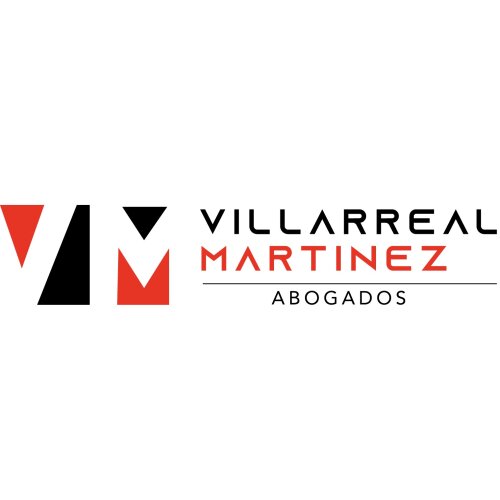Best Conveyancing Lawyers in Monterrey
Share your needs with us, get contacted by law firms.
Free. Takes 2 min.
Free Guide to Hiring a Real Estate Lawyer
List of the best lawyers in Monterrey, Mexico
About Conveyancing Law in Monterrey, Mexico
Conveyancing in Monterrey, Mexico, refers to the legal process of transferring property ownership from one party to another. This process involves several legal and administrative steps designed to ensure the valid and secure transfer of real estate assets. Mexican real estate law is quite different from other jurisdictions such as the United States or Europe. In Monterrey, which is the capital city of Nuevo León, local regulations, state laws, and federal legislation all play a role in how conveyancing transactions are managed. Typically, conveyancing processes must follow established legal protocols to ensure both the buyer and seller are protected during the transaction.
Why You May Need a Lawyer
Although some property transactions seem straightforward, many situations require the assistance of a qualified lawyer experienced in conveyancing. Common circumstances include:
- Purchasing or selling residential or commercial property
- Acquiring property as a foreigner or foreign company
- Drafting, reviewing, or negotiating property contracts
- Identifying or resolving issues with title or property boundaries
- Ensuring compliance with local zoning and land use laws
- Inheritance or succession of property assets
- Dealing with unpaid property taxes, liens, or encumbrances
Lawyers can help avoid costly mistakes, ensure clear title transfer, and protect your interests at all stages of the conveyancing process.
Local Laws Overview
Monterrey’s conveyancing process is mostly governed by state and municipal regulations, alongside federal laws. Key legal aspects include:
- Public Notary Participation: Mexican law requires the involvement of a public notary (notario público) - a specialized legal professional responsible for certifying real estate transactions.
- Title Search: Lawyers or notaries will verify the property’s title to ensure it is free of liens, debts, or irregularities. This includes reviewing the Public Registry of Property records in Nuevo León.
- Property Tax Compliance: All property taxes (predial), capital gains, and other obligations must be paid prior to transfer.
- Foreign Ownership Rules: Foreigners are generally permitted to own land in Monterrey directly, but special rules apply to areas within restricted zones (mainly coastal and border regions, which Monterrey does not fall into).
- Due Diligence: Both buyer and seller have legal obligations to disclose information and address any potential legal or physical defects of the property.
- Anti-Money Laundering Compliance: Financial transactions must meet certain reporting requirements to prevent illicit activities.
Adhering to these laws is essential to ensure a secure and valid property transfer.
Frequently Asked Questions
What does a public notary do in a property transaction in Monterrey?
A public notary (notario público) is a specially appointed legal professional who oversees property transfers, ensures all documents are valid, registers the transaction with the Public Registry, and collects relevant taxes and fees.
Can foreigners buy property in Monterrey?
Yes, foreigners may purchase property in Monterrey directly, as it is not within Mexico’s restricted zones. However, proper legal advice ensures compliance with all requirements.
What are common costs involved in conveyancing?
Costs typically include notary fees, registration fees, property tax payments, lawyer fees, and any applicable capital gains taxes. Buyers and sellers should obtain detailed estimates before starting the process.
How is property ownership verified?
Ownership is verified by reviewing the Public Registry of Property records to check for clear title, liens, and encumbrances. Lawyers and notaries perform this search during the transaction.
What documents are required to buy or sell property?
Common documents include official identification, property title, proof of tax payments, certificates of no debt, and sometimes urban development permits or certificates of occupancy.
How long does the conveyancing process take?
Property transfers can take two to eight weeks, depending on the complexity of the transaction, document availability, and any legal issues that arise during the title search.
Do I need to be present in Mexico to complete a property purchase?
It is preferable to be present, but not required. Buyers or sellers can grant a power of attorney to a trusted representative or legal professional to act on their behalf.
What if the property has unpaid taxes or debts?
Unpaid taxes or debts must be cleared before the property can be legally transferred. The notary will verify payment and may require settlements before proceeding.
What is the role of a lawyer compared to a notary?
A lawyer can provide independent legal guidance, negotiate on your behalf, and assist with due diligence. The notary validates the transaction and ensures compliance with official requirements.
Can property be inherited in Monterrey, and what is the process?
Yes, property can be inherited through Mexican succession laws. The process usually requires probate, legal documentation, and formal transfer with a notary. Legal guidance is highly recommended for inheritors.
Additional Resources
For those seeking further support or information regarding conveyancing in Monterrey, the following resources may be helpful:
- Public Registry of Property (Registro Público de la Propiedad) of Nuevo León - manages property records for title verification.
- Notary Public Association of Nuevo León (Colegio de Notarios de Nuevo León) - provides a directory and information on local notaries.
- Municipal Government of Monterrey - offers guidance on local property taxes and permits.
- State Ministry of Urban Development and Land Use (Secretaría de Desarrollo Urbano y Ecología de Nuevo León).
- Reputable law firms and legal clinics specializing in real estate law within Monterrey.
Next Steps
If you are considering buying or selling property in Monterrey or have questions regarding conveyancing, follow these steps:
- Gather all property documents, including titles, identification, and tax receipts.
- Consult a qualified lawyer experienced in conveyancing and real estate law in Monterrey for a preliminary assessment.
- Select a reputable notary public to handle the legal aspects of your transaction.
- Conduct thorough due diligence with the help of your lawyer and notary.
- Follow all legal recommendations to ensure seamless and secure property transfer.
Taking these steps will help you prevent legal hazards, protect your investment, and facilitate a successful real estate transaction.
Lawzana helps you find the best lawyers and law firms in Monterrey through a curated and pre-screened list of qualified legal professionals. Our platform offers rankings and detailed profiles of attorneys and law firms, allowing you to compare based on practice areas, including Conveyancing, experience, and client feedback.
Each profile includes a description of the firm's areas of practice, client reviews, team members and partners, year of establishment, spoken languages, office locations, contact information, social media presence, and any published articles or resources. Most firms on our platform speak English and are experienced in both local and international legal matters.
Get a quote from top-rated law firms in Monterrey, Mexico — quickly, securely, and without unnecessary hassle.
Disclaimer:
The information provided on this page is for general informational purposes only and does not constitute legal advice. While we strive to ensure the accuracy and relevance of the content, legal information may change over time, and interpretations of the law can vary. You should always consult with a qualified legal professional for advice specific to your situation.
We disclaim all liability for actions taken or not taken based on the content of this page. If you believe any information is incorrect or outdated, please contact us, and we will review and update it where appropriate.











